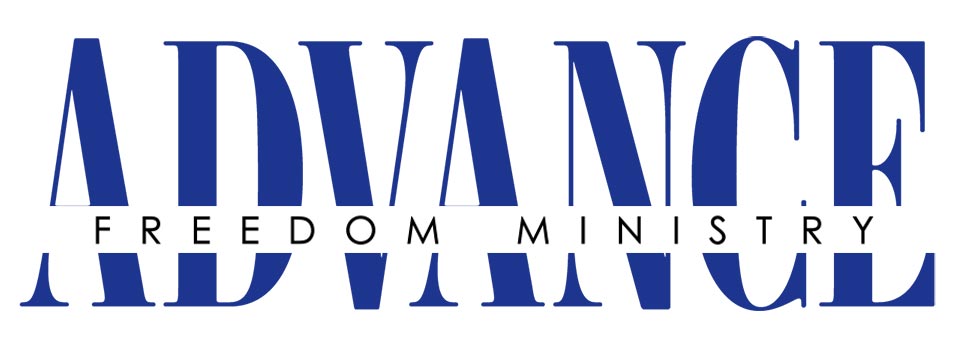Lesson Outline for June 5, 2025
How do you think Father God sees you? How do you approach God?
- What was your relationship like with your father?
- How do you approach your Heavenly Father, as a son and heir, servant, or slave?
Hebrew and Greek Terms / Definitions
- Father= #H5375 “ab” head of household, one who bestows respect and honer / G#3962 “pater” nourisher, protector, upholder- in the NT Jesus used the term “My Father”.
- Abba = #G5 “abba” Aramaic word found 3x in the NT Mar 14:36; Rom 8:15 and Gal 4:6. Hebrew refs note slaves could not use this term. Denotes, a “daddy” relationship, a childlike trust in one’s father.
- Servant = G#3407 “misthios” – wage earner; not really invested in, no real interest in/ connection to the work.
- Bond Servant = H#5650 – “ebed” – slave, Gen 24:2 can be one in servile condition, in OT used for both servant and bond servant/ G#1411 “doulos” – slave; servile condition.
The green is the author’s notes in the verses below. ESV is used throughout unless otherwise referenced
The Loving Father
Luke 15:1-3, 11-32 “1 Now the tax collectors and sinners were all drawing near to hear Him. 2 And the Pharisees and the scribes grumbled, saying, “This man receives sinners and eats with them.” 3 So he told them this parable: …,”
- There are three parables Jesus used in Luke 15, we will look at the “Prodigal Son” / “Loving Father”
- Who was around Jesus? Who was listening? How were they postured (what was their agenda)???
- These sinners were considered some of the worst. The tax collector was not liked by Jew or Gentile
- The Jewish religious leaders considered these sinners, worthless. Jesus the best shepherd smelled like His sheep. He went into the cave for the sheep and pulled them out of the lion’s mouth, carried sheep on His shoulder, slept and protected the sheep – not the Jewish religious leaders – some Rabbis would not teach the unclean
A religious mindset keeps you focused on PERFORMANCE; RELATIONSHIP moves us in LOVE
“11 And he said, “There was a man who had two sons. 12 And the younger of them said to his father, ‘Father, give me the share of property that is coming to me.’ And he divided his property between them.
- During this time, an heir (son) could ask for his inheritance. This request was an “exception” not normal and could be considered highly disrespectful – like considering your father dead. The younger son requested the inheritance, and the father granted it.
- Consider this – as a believer, we have access to our inheritance now – a God’s Kingdom inheritance. Are you accessing the inheritance?
13 Not many days later, the younger son gathered all he had and took a journey into a far country, and there he squandered his property in reckless living. 14 And when he had spent everything, a severe famine arose in that country, and he began to be in need. 15 So he went and hired himself out to one of the citizens of that country, who sent him into his fields to feed pigs.
- Can you see yourself in this verse? I can. My father, who was not walking with my Lord and Savior Jesus Christ when I was a young man, still gave me wise counsel in my reckless and foolish living days; he did not shame me, he forgave me when I sinned against him.
- It is healthy for a young man to desire independence for his life. We should train up or sons to shepherd their families, but we were never meant to be disconnected from God. Adam walked with God; even Cain had conversations with God as the Father counseled Cain, but Cain chose to let sin rule over him, rather than righteousness. We see great men of God throughout the Bible in relationship with God. They were NOT perfect, but they had a heart of God.
- The young son was severely impacted by the famine. No one came and bailed the young son out of the problems he himself created; the young man knew if he did not work, he would not survive.
- The father’s estate was not impacted in the same way. It appears the father’s estate received little to no negative consequence.
Psalm 1 and Jer 17:7-8 demonstrate when we stay connected to the Father we can withstand “droughts” and hard times and flourish during them.
We had a saying when I was in the military, “Hard times don’t last, but hard men do.” Men, we last because we have been developed and tested, approved and are operating in God’s will and authority.
As Christian men leading ourselves, families and communities we will be looked at when “hard times” come, we should look and act different than the world.
16 And he was longing to be fed with the pods that the pigs ate, and no one gave him anything. 17 “But when he came to himself, he said, ‘How many of my father’s hired servants have more than enough bread, but I perish here with hunger! 18 I will arise and go to my father, and I will say to him, “Father, I have sinned against heaven and before you. 19 I am no longer worthy to be called your son. Treat me as one of your hired servants.”‘
- The young son came to his senses! His misery brought clarity of thought. He did not focus on his misery; he focused on his father. In his heart, He knew his father.
- A hired servant is not concerned about the property or product for one he works for, he is working for a wage – the son only wanted what a hired servant received.
- Do you remember a time when you came to your senses? Was their repentance in your mind when you came to your senses?
- Repentance changes the way we think; and brings about a changed life. The son was willing to go be a servant on his father’s estate. Think of the humility of the younger son, once giving orders, managing the estate, having authority to conduct actions on behalf of the father – now just hoping to be a servant.
20 And he arose and came to his father. But while he was still a long way off, his father saw him and felt compassion, and ran and embraced him and kissed him. 21 And the son said to him, ‘Father, I have sinned against heaven and before you. I am no longer worthy to be called your son.’
- Repentance in action. The son arose and went to the father directly.
- The father saw him from a long way off. No matter how far away you and I think we are, the father sees you and desires our return. The father saw the son in love, not condemnation
- Don’t listen to the enemy! Satan knows you, your name, sees you and calls you by your sin; Satan wants to shame you and keep you from our Father in Heaven.
- Your Father in Heaven knows your sin but call you by your name. Our Father does not see us in our sin, but who He created us to be, and for the purposes He created us to accomplish.
22 But the father said to his servants, ‘Bring quickly the best robe, and put it on him, and put a ring on his hand, and shoes on his feet. 23 And bring the fattened calf and kill it, and let us eat and celebrate. 24 For this my son was dead, and is alive again; he was lost, and is found.’ And they began to celebrate. 25 “Now his older son was in the field, and as he came and drew near to the house, he heard music and dancing. 26 And he called one of the servants and asked what these things meant.
- Check out Zech 3:1-7. This is what our Father in Heaven has for us…, when we repent. He puts us in a clean robe, and turban; He rebukes Satan!
- The son’s repentance brings RESTORATION!
- The son is given authority, he can make transactions on the father’s behalf. As believers in Jesus Christ, He gives us authority for our purposes on earth. There is a celebration in Heaven. Do you know this kind of Father. This is RELATIONSHIP. He is restored by repentance, not PERFORMANCE.
- He is given the “ring” a seal. We too are sealed by Jesus Christ in our restoration. Do you operate in that authority?
- What transactions are you making on behalf of your Father in Heaven?
The older brother is concerned with performance and sees himself much differently than his position.
- We see this in whom the older brother engages with; he asked a servant, not the Father. The brother identifies as a servant.
27 And he said to him, ‘Your brother has come, and your father has killed the fattened calf, because he has received him back safe and sound.’ 28 But he was angry and refused to go in. His father came out and entreated him, 29 but he answered his father, ‘Look, these many years I have served you, and I never disobeyed your command, yet you never gave me a young goat, that I might celebrate with my friends.
- The older brother is angry, isolates himself and disrespects the father as much as the younger brother did previously.
- He makes wild claims of his obedience while disrespecting his father “look” – this is like getting in his father’s face, while the father is humbling himself to the older brother to come in and celebrate.
- He was self-deceived.
- He served as a slave and did not operate as a son. He did not want a goat to celebrate with his family; he had no concern for his brother or father; the older son wanted to celebrate with his friends.
- Ouch! Have you ever done this?
30 But when this son of yours came, who has devoured your property with prostitutes, you killed the fattened calf for him!’ 31 And he said to him, ‘Son, you are always with me, and all that is mine is yours. 32 It was fitting to celebrate and be glad, for this your brother was dead, and is alive; he was lost, and is found.'”
- The father had love for both sons; but only one received the love.
- Religious people have unrighteous anger.
- A religious spirit has us comparing ourselves to others.
- The older brother was jealous – ENTITLED, VICTIM, OFFENDED, DEMANDING- Got upset at someone else receiving a blessing / favor. Did not recognize his brother’s return.
- The older son operated in an Orphan spirit and isolated himself
- Cain was jealous of Abel, angry with no repentance. Saul was jealous of David, did not repent. Pharisees jealous of Jesus – they had NO SON RELATIONSHIP with their Father in Heaven – Performance, pride and religiosity was their system of worship.
- The older son had access to the inheritance but can’t unlock it.
Final Thoughts
How do you think your Father and Creator in Heaven sees you?
More importantly, how do you see yourself in your relationship with your Father in Heaven?
As a believer in Jesus Christ of Nazareth as your Savior – you have direct access to the Father, to His throne room, to heavenly authority
He has dressed you in Jesus Christ and you have a new robe and turban






